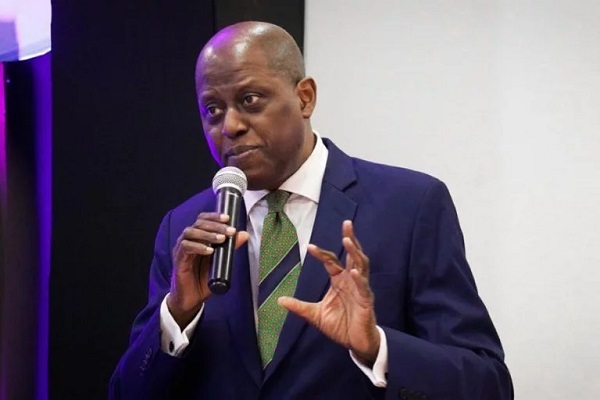Having increased the benchmark interest rate by more than 875 basis points this year, the Central Bank of Nigeria (CBN), has said there may be a shift to ease monetary policy starting from next year as the effects of the six rate hikes of this year begin to manifest.
The Monetary Policy Committee (MPC) of the CBN had at its last meeting last week raised the benchmark interest rate marginally in line with the hawkish stance that had been adopted to battle the country’s unabating inflation.
At the end of the meeting, the MPC had decided to retain the Cash Reserve Ratio (CRR) at 50 per cent for Deposit Money Banks and 16 per cent for Merchant Banks. It also left the Liquidity Ratio (LR) unchanged at 30 per cent alongside the Asymmetric Corridor, which remained at +500/-100 basis points around the Monetary Policy Rate (MPR).
Inflation had continued to rise reaching 33.88 per cent as at October. According to the governor of the CBN, Olayemi Cardoso, the hawkish stance had been an essential move to contain inflation and restore stability.
To him, the central bank is resolute in continuing to fight the war against inflation. “We are going to deploy everything in our arsenal to ensure that we are able to tame it. And of course, this entails the return to orthodox monetary policies. It is also important for people to understand that there is a timeline between when you implement policies and when they have impacts. And that timeline can be from six months to a year. Our perspective is that we expect to see greater results in the first quarter of 2025.
“I fully recognise the challenges that higher interest rates impose on businesses and families. However, these measures are not intended to be permanent. We are closely monitoring the data, and as inflation shows sustained signs of improvement, something we expect in the near future, we will adjust rates accordingly.
“Our tight monetary policy stance has altered the previous dire trajectory, and we expect a downward trend in 2025. Inflation remains unacceptably high, but the signs are encouraging, particularly given that the full effects of monetary policy typically take six to nine months to impact the consumer sector. Our commitment is unwavering, we will prioritise price stability until its benefits are felt by every Nigerian,” he stressed.
However, analysts say they expect the tightening stance of the monetary policy to continue in 2025 as inflation remains unabated. Analysts at Cowry Assets Management note that the MPC’s measured move reflects a shift to a dovish stance as it seeks to balance inflation control with the economic realities of 2025.
“This most recent 25 basis point hike signals a shift towards assessing the lagging effects of previous rate hikes as the committee appears keen to gauge the impact of tighter monetary conditions on inflation and economic growth while remaining vigilant to domestic and global economic developments.
“We think the decision reflects the MPC’s intent to curb aggregate demand without significantly dampening economic output; reinforce its credibility in maintaining price stability, narrow the negative real interest rate gap to encourage domestic savings and restore investor confidence; and taper economic and financial conditions to manage systemic liquidity effectively.
“Looking ahead, the MPC is likely to maintain a tightening stance in early 2025, particularly if inflationary pressures persist. However, as inflation shows signs of moderation, the committee may adopt a more accommodative approach to stimulate growth and improve real income levels.
“Collaborative efforts between fiscal and monetary authorities remain critical to achieving synchronised objectives of economic stability and sustainable development. The current approach signals cautious optimism, as the CBN navigates the complexities of inflation control, economic growth, and monetary transmission in the Nigerian economy,” they pointed out.
Similarly, analysts at Cordros Research project that the MPR would be raised by an additional 25 basis points. “Given the Committee’s commitment to stabilise prices and the anticipated uptick in headline inflation in the coming months, primarily driven by the lingering effects of elevated PMS prices, sub-optimal food harvests, and the seasonal uptick in consumer demand following the festive period, we expect the MPC to tighten further. Specifically, we expect the MPC to raise the policy rate by an additional 25bps at the next meeting scheduled for January 2025,” the analysts stressed.
Looking at the impact of the latest decision, analysts at Parthian Securities noted that the higher borrowing costs would discourage borrowing and reduce consumer spending. Also, for households, the marginal propensity to save will likely increase as interest rates rise.
For businesses, the higher interest rate will increase the difficulty of getting funding for business expansion plans and investment in new projects, thus limiting economic growth and job creation. The government would also be impacted as the higher interest rate would push up debt service costs and put a strain on government finances.





